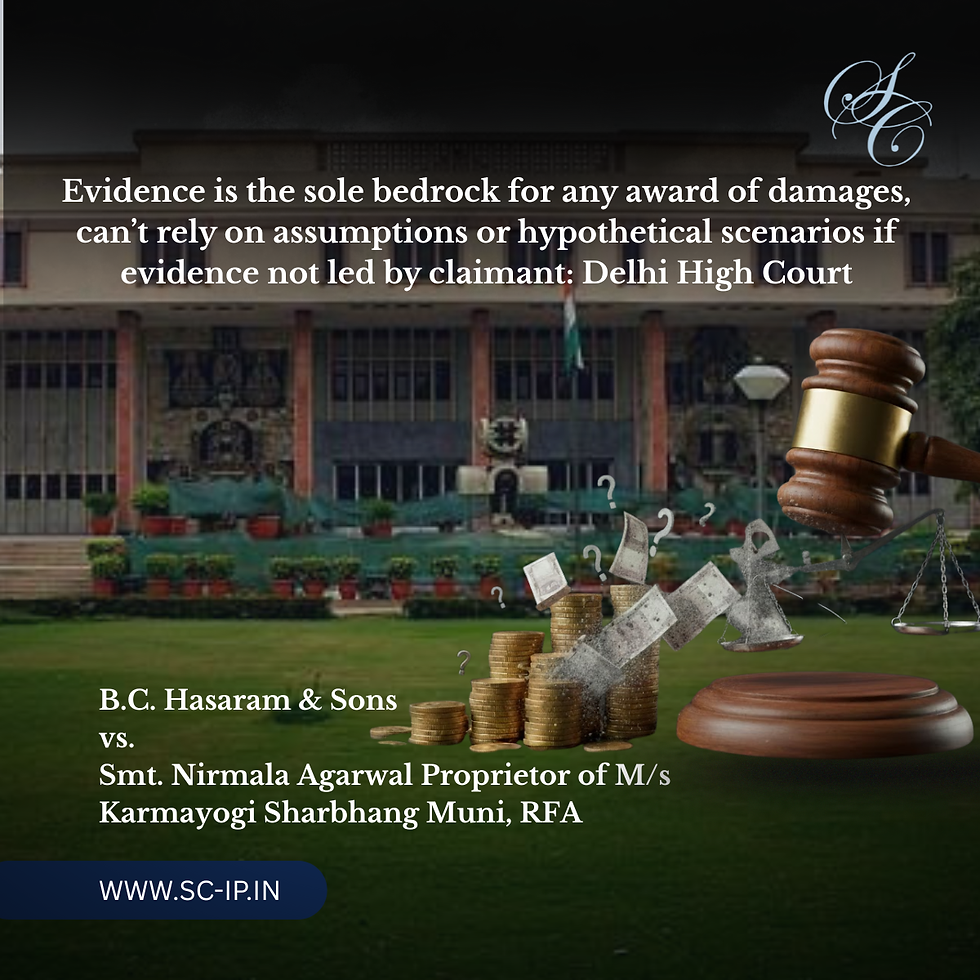Gunjan Sinha @ Kanishk Sinha & Anr v. Union of India & Ors
- SC IP
- May 3, 2025
- 2 min read

Recently, a Division Bench of the Calcutta High Court dismissed an appeal challenging the constitutional validity of Section 53 of the Patents Act, 1970, and seeking an extension of the patent term.
The appellants had applied for a patent in 2005, which was granted in 2012, with a 20-year validity period. The appellants initially invoked writ jurisdiction, requesting an extension of the term by 15 years as compensation for delay in the grant, and sought to rescind Section 53. The writ petition was dismissed, with liberty to seek damages. Subsequent appeals and review petitions failed, culminating in the filing of the present appeal.
The appellants argued that Section 53 sets the grant date from the application date, whereas Section 11A (7) provides rights from the publication date but restricts infringement proceedings until the patent is officially granted. They contended that this inconsistency undermines their ability to enforce rights effectively. Additionally, they challenged Rule 80, which mandates renewal fees from the second-year post-application and argued that the patent was delayed by 7 years, but the renewal fee was paid for the whole of the term, causing double jeopardy, leading to a violation of their rights under Article 22 of the Constitution. This, they claim, amounts to an unfair burden, as the patent was neither received nor commercially utilised during the delayed period. Accordingly, they argued that procedural inconsistencies hindered their patent infringement claims due to stipulations in Section 11A (7). The appellants contended that
Respondents argued that the claim was barred by res judicata, citing previous dismissals by the courts, including the Division Bench, and the subsequent review rejection. They emphasized that Section 53 was upheld in prior rulings and that the appeal lacked merit.
After considering the factual and legal contentions, the court dismissed the case, stating that the statue mandates an action of infringement may be brought about only if a patent has been granted though damages can be sought from the date of publication, and thus both Section 53 and Section 11A (7) operate in two different fields. The court also observed that Section 53 aligns with international obligations under TRIPS, extending patent terms while providing limited interim protection through Section 11A (7). The court also considered findings from a committee, which examined expedited examination feasibility and Patent Term Adjustment (PTA), which concluded that PTA, as implemented in the USA, was unsuitable for India, given concerns about prolonged monopoly and technological obsolescence.
Ultimately, the court found no merit in interfering with the original judgment, reiterating that legislative matters should remain within the purview of policymakers.
Gunjan Sinha @ Kanishk Sinha & Anr v. Union of India & Ors [MAT 903 OF 2024 with CAN/2/2024]




Comments